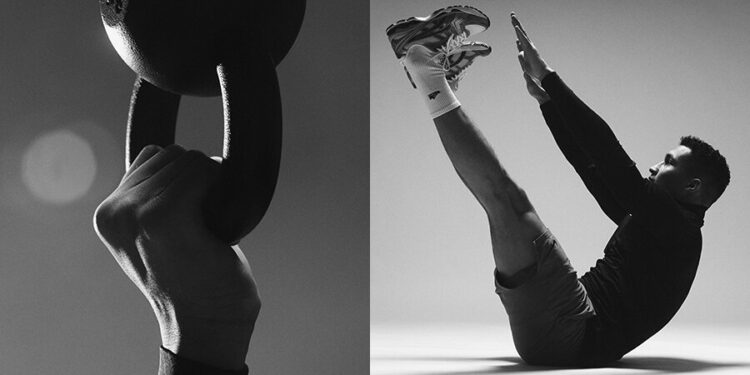Many people believe that to build strength you either need a set of weights or a gym membership. Air squats are fine for the beginner, the thinking goes, but real workouts require equipment.
But is that true? Or can body weight exercises like hip bridges, dips and lunges get you the same benefits as pumping iron?
Research suggests that, for most people, the answer is yes. Your body doesn’t care if you’re doing a bench press or push-ups. “The muscle is agnostic,” said Anoop Balachandran, an assistant professor of exercise science at the City University of New York. “All it recognizes is tension on the muscle.”
That said, there are some advantages for each. Here’s what you need to know to get the best results from your strength workout.
The secret to success is failure.
No matter how you do it, strength training fundamentally requires you to exercise your muscle until it’s nearly exhausted in order to get stronger.
“We generally say that you need to train to the point of momentary failure, so that you’re trying as hard as you can to perform the exercise until you can’t,” said exercise scientist James Steele, head of research at Kieser Australia, a chain of exercise and health clinics.
If your goal is just to get stronger, numerous studies have shown that you can get similar results from either body weight exercises or lifting weights, Dr. Steele said. For instance, in a small 2022 study, he and several colleagues asked regular exercisers in Minnesota to switch from their weight room routines to body weight workouts at home. The changes in strength, at least over three weeks, were similar.
The same was true in a Japanese experiment comparing push-ups to bench press — both resulted in similar strength and muscle gains. And a small 2022 study found that increasing weight with the same number of reps was roughly as effective over two months as increasing the reps at the same weight.
In other words, it’s the effort that counts, not what you are lifting. As you get stronger, the exercises you’re doing will naturally get easier, and you have to find ways to keep your effort level high in order to improve. In the weight room, that’s easy: “just stack on some more weight,” Dr. Balachandran said.
But if you rely on body weight workouts, you will have to find other, perhaps more creative, ways to progress the effort. For instance: increasing your repetitions, incorporating tools like exercise bands or finding increasingly harder versions of your exercises, like putting your legs on a chair to make a push-up more difficult.
Do weights come with a higher risk of injury?
Yes, free weights can cause injury, but not because you pull a muscle overexerting yourself. It’s usually the weights themselves that pose a danger, Dr. Steele said. An epidemiological study of weight training injuries leading to ER visits over a 17-year period found that the most common mechanism of injury was a weight being dropped on the victim.
When it comes to joint or muscle injuries, we don’t really know whether one type of strength training is more problematic because “nobody has ever compared the two,” said Stuart Phillips, a professor of kinesiology at McMaster University in Ontario, Canada. Though presumably the heavier loads often used in weight lifting would present more strain and thus a higher risk.
No matter what type of workout you choose, learning proper technique, progressing slowly and warming up can reduce your chance of injury, Dr. Phillips said.
What if you just want to stay healthy?
Of course, not everybody is doing strength training to get jacked. Some of us just want to age well and stay strong enough to perform activities of daily living without falling or getting hurt. In that case, it’s fine to stop a few reps short of total failure, Dr. Steele said.
While most official guidelines in the United States, Britain and Canada recommend strength training twice per week, Dr. Steele said the best available research suggests you can still get most benefits from one strength training session per week.
“I tend to still tell people to aim for twice a week, because if you miss one session, you still hit your minimum effective dose,” he added.
More important than the kind of strength training you do, or even how often, is finding something that you will do consistently, said Jasmin Ma, an assistant professor who studies exercise at University of British Columbia.
“It needs to be part of your lifestyle,” she said. It should be a lifelong habit, like brushing your teeth.
Christie Aschwanden is a writer based in western Colorado and the author of “Good to Go: What the Athlete in All of Us Can Learn from the Strange Science of Recovery.”







